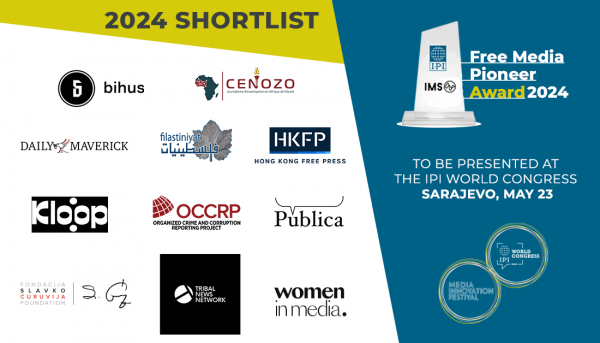Colombian radio journalist Clodomiro Castilla was shot dead by unidentified gunmen on 19 March. Castilla, editor of the Colombian magazine El Pulso del Tiempo and an announcer and reporter with local radio station La Voz de Monteria (www.vozmonteria.com), was reading on the terrace of his home when a gunman on a motorcycle shot him several times and then fled. Castilla was known for his reporting on politicians with links to paramilitary death squads. According to The Washington Post, he had received death threats in the past.
The Colombia-based Foundation for Press Freedom (Fundación para la Libertad de Prensa) said that since 2006, Castilla had been part of the Programme for Protection of Journalists of the Ministry of Interior and Justice. In 2009, his bodyguards were withdrawn after an apparent request by Castilla to reassess his security scheme was allegedly refused by the Programme for Protection of Journalists.
According to the Associated Press, police had no immediate suspects in the killing and offered a $26,000 reward for leads.
In an exclusive interview with IPI’s Press Freedom Adviser Barbara Trionfi, Rafael Gomez, owner and director of La Voz de Monteria, spoke about Castilla’s killing, the government response and the consequences of his murder on press freedom in Colombia.
IPI: Do you believe Clodomiro Castillo was killed because of his work as a journalist?
He was assassinated precisely because of his journalistic work, because he was carrying out investigations about the editor-in-chief of the local newspaper in Cordoba, El Meridiano de Cordoba, Mr. William Salleg. Clodomiro was working on a story about land expropriation from peasants in this province. He basically was investigating accusations by the authorities against the department of Cordoba. […]
All of us who work for this radio station have spent the last year and a half denouncing the lack of justice and the persecution of journalists and the even more vile fact that not only he was killed, but one day after the murder, on 20 March, the newspaper [El Meridiano de Cordoba] publishes an article saying that he was a junkie and a former convict, although the whole world knows that he is one of the persons who fought against the scourge of drugs. Clodomiro was addicted for 15 years, and we all helped him to get rid of this state of frustration so that he could start to gain his family and his job back. And what El Meridiano de Cordoba said is that they simply killed a junkie, without mentioning that he was carrying out investigations. […]
IPI: Will the death of Clodomiro Castilla lead to self-censorship in Colombia?
We have done a programme today [24th March] on our station that will be broadcasted over the Internet exclusively for the next 24 hours. We can not remain silent. I believe we have a social and moral responsibility in front for acts such as this one. And other death threats might come to some of our journalists for having exposed these facts.
IPI: What about other journalists in Colombia? Does such violence against a journalist, who was known for his investigations, lead to self-censorship about such sensitive issues?
Indeed! Indeed! Seventy per cent of the press in Colombia is silenced, and the remaining 30 per cent is bought by local governments, which pay for university-level training courses with public funds so that they remain silent and they become accomplices of all these crimes. The local press here is a corrupt press. This is the fundamental factor.
IPI: Are you aware of any evolution in the investigations into this crime?
We don’t know anything about that. This has happened two days ago and they have tried to confuse the public opinion [into believing that investigations were being carried out]. They said that a muffler was used, and that they drove a certain car and so on, but it is all not true. There was no muffle and the shots were heard in the surrounding area. This was simply fear. Anyway he was killed in front of the door of his home, where he was shot 8 times. The colonel of the police said that he had asked for his protection escort to be withdrawn. This is false! On the 13th of March, six days before he was killed, Clodomiro asked to the commander of the police in Cordoba to change the way they were offering him protection in order to give him real guarantees. Somebody who does not want to be under police protection would not ask police for better protection.
IPI: According to news reports, Colombian President Alvaro Ulribe said that the government had done everything in its power to protect the journalist. What is your opinion about this?
President Ulribe is badly informed. He is badly informed. Security in Cordoba asked the President to ensure the right of life for journalists – not just the right to report.


